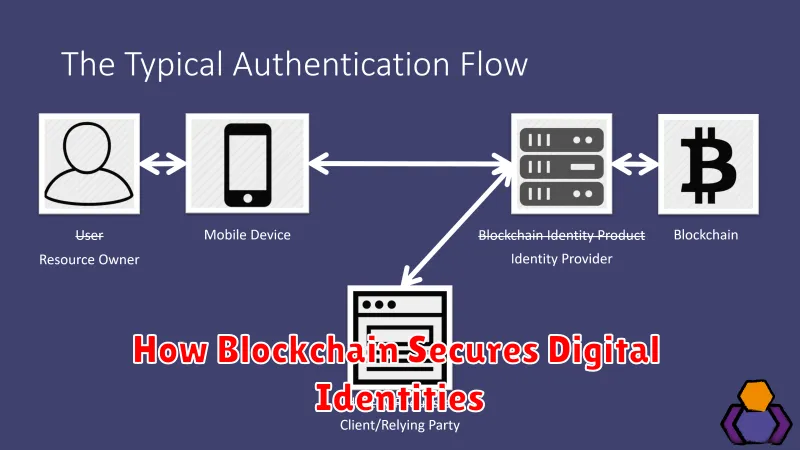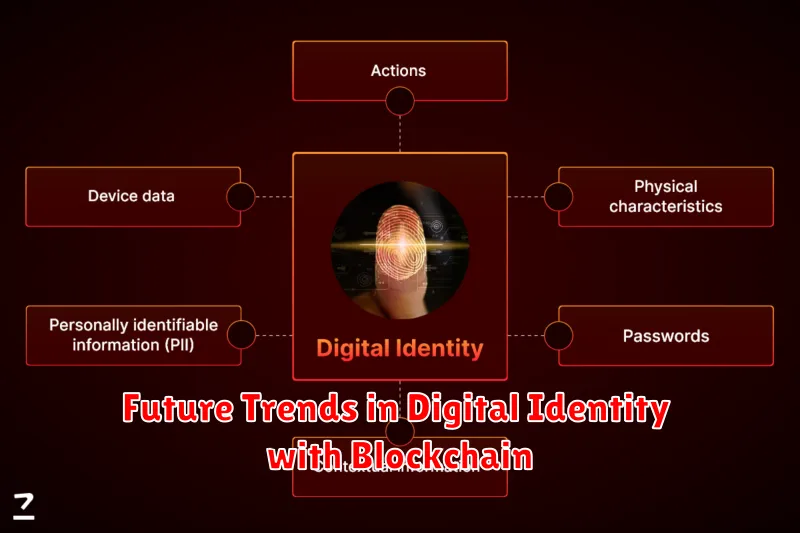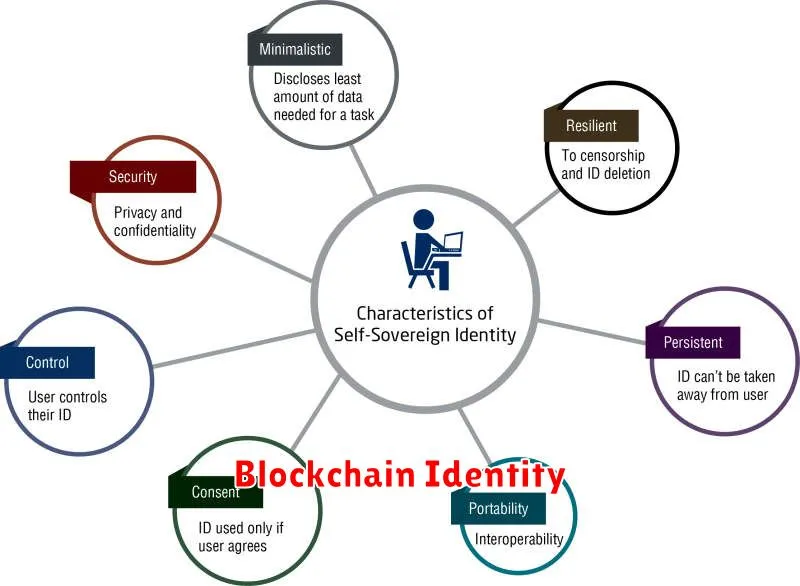In today’s digital world, secure and reliable identity verification is more important than ever. Traditional methods are often cumbersome, prone to fraud, and lack the necessary security measures. Enter blockchain technology, a revolutionary solution that offers unparalleled benefits for digital identity verification. Blockchain’s decentralized and immutable nature makes it an ideal platform for creating secure, tamper-proof digital identities, significantly enhancing trust and transparency across various applications.
From streamlining onboarding processes to combating identity theft, the impact of blockchain on digital identity verification is profound. This article will delve into the key advantages that blockchain offers, exploring how it empowers individuals and organizations to establish secure and verifiable digital identities. We will also examine the real-world applications of blockchain in identity verification, showcasing its potential to transform how we interact and conduct business online.
How Blockchain Secures Digital Identities

Blockchain technology plays a crucial role in securing digital identities by offering a decentralized and tamper-proof system for storing and verifying personal information. Unlike traditional centralized databases, blockchain distributes data across a network of computers, making it highly resistant to manipulation or data breaches. This distributed ledger technology ensures the immutability of records, guaranteeing the authenticity and integrity of digital identities.
One key feature of blockchain that enhances digital identity security is the use of cryptography. Every transaction on a blockchain is encrypted, making it virtually impossible for unauthorized individuals to access or alter data. This cryptographic approach safeguards sensitive information, such as personal details and identification documents, from potential threats.
Moreover, blockchain facilitates secure authentication by employing digital signatures and cryptographic keys. When a user interacts with a system, their unique digital signature verifies their identity and confirms their authorization to access specific data or services. This secure authentication process minimizes the risk of identity theft and unauthorized access.
Furthermore, blockchain empowers individuals with greater control over their data. Users can choose which information they share and with whom, fostering privacy and data sovereignty. The decentralized nature of blockchain allows users to manage their digital identities without relying on third-party intermediaries, enhancing autonomy and control over their personal information.
In summary, blockchain technology enhances digital identity security by leveraging cryptography, secure authentication, and decentralized data storage. Its tamper-proof nature, immutability of records, and user-centric approach make it a promising solution for safeguarding digital identities in the digital age.
The Role of Blockchain in Preventing Identity Theft
Blockchain technology has emerged as a revolutionary tool in various sectors, including digital identity verification. Its inherent security features offer robust protection against identity theft, making it a valuable asset in safeguarding personal information.
One of the primary ways blockchain combats identity theft is through its decentralized nature. Data is not stored in a single central location, making it difficult for hackers to compromise the entire system. Instead, information is distributed across a network of computers, enhancing security and resilience.
Another crucial aspect of blockchain is its immutability. Once data is recorded on the blockchain, it cannot be altered or deleted, creating an unbreakable audit trail. This prevents fraudulent activities such as identity manipulation or the creation of fake identities.
Furthermore, blockchain technology enables secure and transparent data sharing. Individuals can control their digital identity data and grant access to specific entities only when necessary. This transparency fosters accountability and reduces the risk of unauthorized access to sensitive information.
By implementing blockchain for digital identity verification, we can significantly reduce the vulnerability to identity theft. This technology empowers individuals with greater control over their personal data, while fostering a more secure and trustworthy online environment.
Challenges in Implementing Blockchain for Identity Verification
While blockchain technology offers numerous advantages for digital identity verification, several challenges must be addressed for its successful implementation. One significant hurdle is the lack of standardized protocols and frameworks. The decentralized nature of blockchain can lead to fragmentation and incompatibility between different systems, hindering interoperability and seamless identity verification across platforms.
Another challenge is ensuring data privacy and security. Blockchain’s immutability, while a benefit for data integrity, also poses risks. Data breaches or unauthorized access could compromise sensitive personal information. Robust security measures and encryption techniques are essential to mitigate these risks. Moreover, maintaining the anonymity of individuals while verifying their identities requires careful consideration and innovative solutions.
Scalability remains a concern, as blockchain networks can struggle to handle large volumes of transactions, particularly during peak periods. This can impact the efficiency and speed of identity verification processes. Solutions like sharding and layer-two scaling technologies are being explored to address this challenge.
Finally, regulatory and legal frameworks are evolving, and there are still uncertainties surrounding the legal recognition and acceptance of blockchain-based identities. Clear guidelines and regulations are crucial to establish trust and ensure compliance with existing laws and data privacy requirements.
Despite these challenges, ongoing research and development efforts are addressing these concerns. As the blockchain ecosystem matures, we can expect to see more robust solutions and greater adoption of this transformative technology for digital identity verification.
Future Trends in Digital Identity with Blockchain

Blockchain technology is revolutionizing the way we manage and verify digital identities. Its decentralized and immutable nature offers a secure and transparent system for storing and sharing personal information, empowering individuals to control their data and have greater autonomy over their digital identities.
Self-Sovereign Identity (SSI) is a key trend emerging from blockchain’s potential. With SSI, individuals can manage their own digital identities, control what information is shared, and grant access selectively. This empowers individuals with greater privacy and security, reducing reliance on centralized authorities.
Another emerging trend is the integration of decentralized identifiers (DIDs). DIDs are unique identifiers linked to a person’s identity data stored on a blockchain, enabling secure and verifiable authentication. DIDs can be used across different platforms and applications, promoting interoperability and seamless identity management.
Verifiable credentials are another crucial aspect of blockchain-based identity. They are digital records that can be issued and verified independently, providing a tamper-proof and auditable method for establishing trust and authenticity. Verifiable credentials can streamline processes like background checks, educational verification, and employment verification.
As blockchain technology matures, we can expect further advancements in digital identity solutions. Integrating artificial intelligence (AI) and machine learning (ML) will enable more sophisticated identity verification systems, enhancing security and fraud prevention. Moreover, the integration of biometric authentication and multi-factor authentication will further strengthen digital identity security.
These trends point to a future where blockchain will play a vital role in shaping a more secure, private, and user-centric digital identity landscape. By embracing blockchain technology, we can move towards a future where individuals have greater control over their digital identities, enabling trust and efficiency in a digital world.
Case Studies: Successful Blockchain Identity Solutions
Blockchain technology is revolutionizing the way we manage and verify digital identities. Its decentralized and secure nature provides a robust foundation for building trust and transparency in online interactions. Several successful case studies demonstrate the potential of blockchain for digital identity solutions.
Self-Sovereign Identity (SSI) projects like Sovrin and Evernym empower individuals to control their own digital identities. Users can store their personal data in a secure and portable digital wallet, granting them greater autonomy and control over how their information is shared. These platforms offer verifiable credentials and secure communication channels, fostering trust in online interactions.
Government-Led Initiatives have also adopted blockchain for digital identity verification. Estonia’s e-Estonia platform leverages blockchain to provide secure and efficient digital identity management for its citizens. This allows citizens to access government services, vote, and conduct transactions online with ease and security.
Supply Chain Management is another area where blockchain is transforming digital identity. Walmart has implemented a blockchain-based platform to track and verify the provenance of its food products. This enhances transparency and traceability, improving food safety and reducing the risk of fraud.
Healthcare is also embracing blockchain for digital identity. The MediBloc platform uses blockchain to create a secure and decentralized system for managing and sharing patient data. This empowers patients to control their medical records and facilitates seamless data exchange between healthcare providers.
These case studies highlight the diverse applications of blockchain for digital identity solutions. By leveraging its decentralized and secure nature, blockchain empowers individuals, organizations, and governments to build trust and transparency in online interactions. As blockchain technology continues to evolve, we can expect to see even more innovative and impactful identity solutions emerge.
Real-World Applications of Blockchain in Identity Management
Blockchain technology is revolutionizing the way we manage digital identities. Its decentralized and secure nature offers a robust solution to the challenges of traditional identity verification systems. Blockchain-based identity management empowers individuals to control their own data, making it more secure and accessible. This technology has far-reaching implications across various sectors, enabling innovative solutions for identity verification, authentication, and data sharing.
One prominent application is in the realm of digital identity wallets. These wallets allow users to store and manage their identity information on the blockchain, granting them greater control over their data. Individuals can selectively share specific credentials with authorized parties, ensuring privacy and reducing the risk of identity theft.
Healthcare is another area where blockchain is transforming identity management. By utilizing secure, immutable records on the blockchain, patient medical data can be shared seamlessly and securely among healthcare providers. This eliminates the need for multiple paper records, fostering better coordination and efficiency in patient care. Moreover, blockchain technology can enable secure access to medical records for patients while maintaining their privacy.
In the financial sector, blockchain is streamlining identity verification processes for both individuals and businesses. Know Your Customer (KYC) procedures, often cumbersome and time-consuming, can be significantly streamlined through blockchain-based solutions. Secure and verifiable identity data can be shared across multiple financial institutions, reducing duplication of effort and facilitating faster onboarding.
Furthermore, blockchain-based identity management has the potential to empower citizens in developing countries who lack access to formal identity documents. By leveraging mobile devices and blockchain technology, these individuals can establish secure digital identities, enabling them to participate in financial services and other essential activities.
Overall, blockchain-based identity management is a transformative technology with the power to enhance security, privacy, and accessibility of digital identities. Its potential applications extend across multiple industries, creating a more secure and equitable future for identity verification and data sharing.

